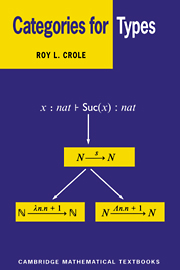
Theoretical Foundations of VLSI Design
Part of Cambridge Tracts in Theoretical Computer Science
- Editors:
- K. McEvoy, University of Leeds
- J. V. Tucker, University of Wales, Swansea
- Date Published: December 2003
- availability: Available
- format: Paperback
- isbn: 9780521545655
Paperback
Other available formats:
eBook
Looking for an inspection copy?
This title is not currently available on inspection
-
This book discusses recent research in the theoretical foundations of several subjects of importance for the design of hardware, and for computer science in general. The physical technologies of very large scale integration (VLSI) are having major effects on the electronic industry. The potential diversity and complexity of digital systems have begun a revolution in the technologies of digital design, involving the application of concepts and methods to do with algorithms and programming. In return, the problems of VLSI design have led to new subjects becoming of importance in computer science. Topics covered in this volume include: models of VLSI complexity; complexity theory; systolic algorithm design; specification theory; verification theory; design by stepwise refinement and transformations. A thorough literature survey with an exhaustive bibliography is also included. The book has grown from a workshop held at the Centre for Theoretical Computer Science at Leeds University and organised by the editors.
Customer reviews
Not yet reviewed
Be the first to review
Review was not posted due to profanity
×Product details
- Date Published: December 2003
- format: Paperback
- isbn: 9780521545655
- length: 452 pages
- dimensions: 246 x 189 x 17 mm
- weight: 0.803kg
- availability: Available
Table of Contents
Introduction
Part I. Formal Methods and Verification:
1. A mechanised proof of correctness of a simple counter
2. A formal model for the hierarchical design of synchronous and systolic algorithms
3. Correctness proofs for systolic algorithms
4. A palindrome recogniser
Part II. Theory and Methodology of Design:
5. Formal specification of a digital correlator
6. Describing and reasoning about circuits using relations
Part III. Models of Circuits and Complexity Theory:
7. Superpolynomial bounds on monotone network complexity
8. The prioritiser experiment
9. Estimation and measurement of computation time in VLSI.
Sorry, this resource is locked
Please register or sign in to request access. If you are having problems accessing these resources please email [email protected]
Register Sign in» Proceed
You are now leaving the Cambridge University Press website. Your eBook purchase and download will be completed by our partner www.ebooks.com. Please see the permission section of the www.ebooks.com catalogue page for details of the print & copy limits on our eBooks.
Continue ×Are you sure you want to delete your account?
This cannot be undone.
Thank you for your feedback which will help us improve our service.
If you requested a response, we will make sure to get back to you shortly.
×






